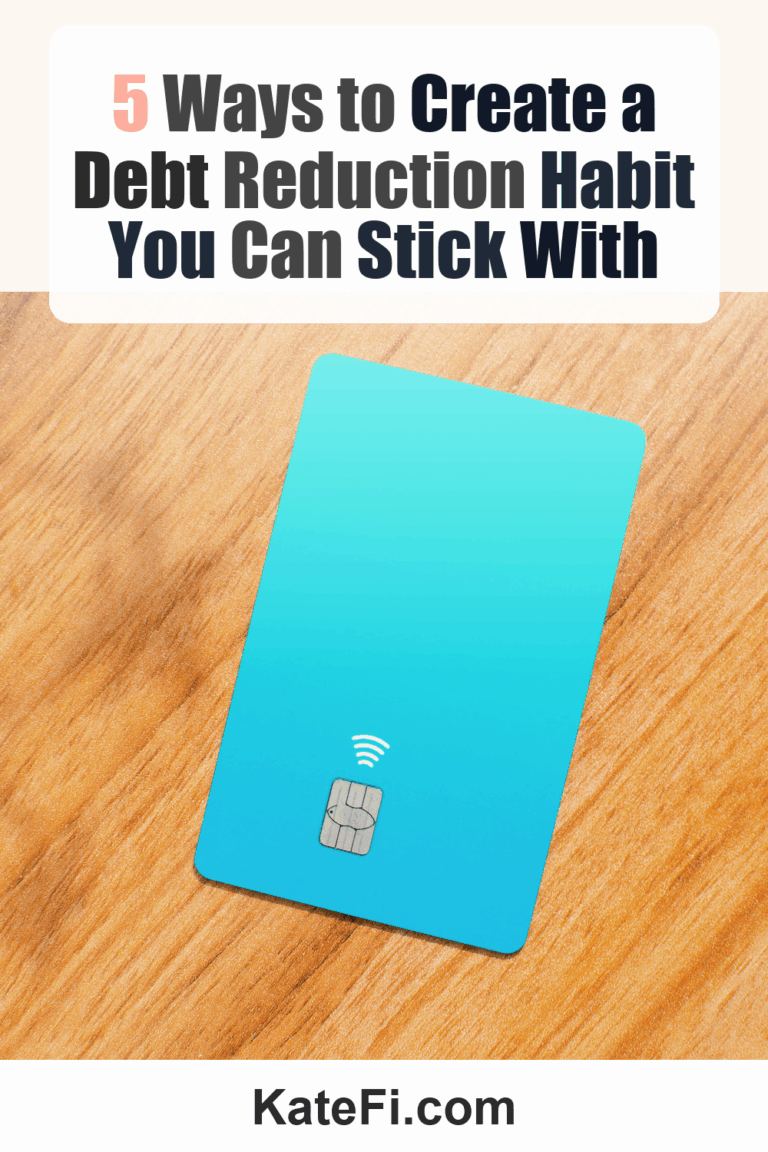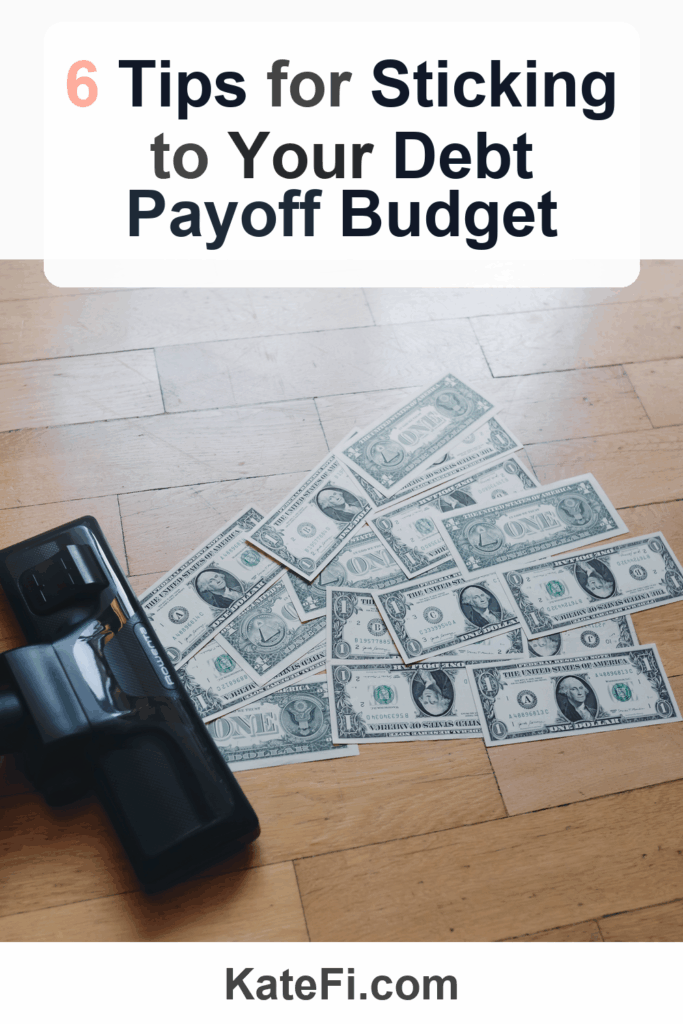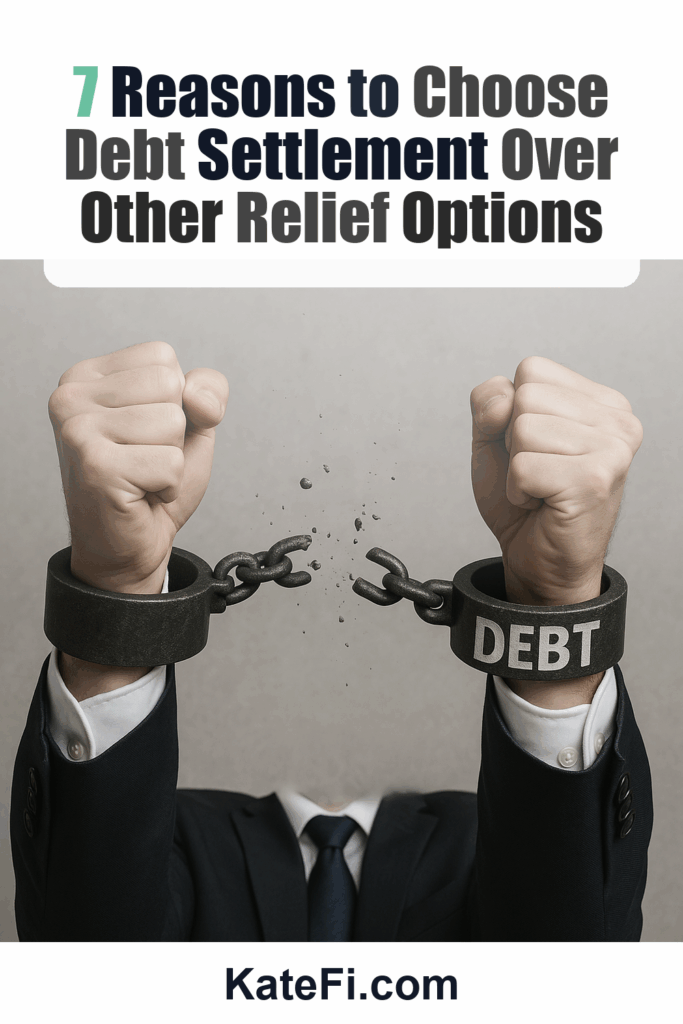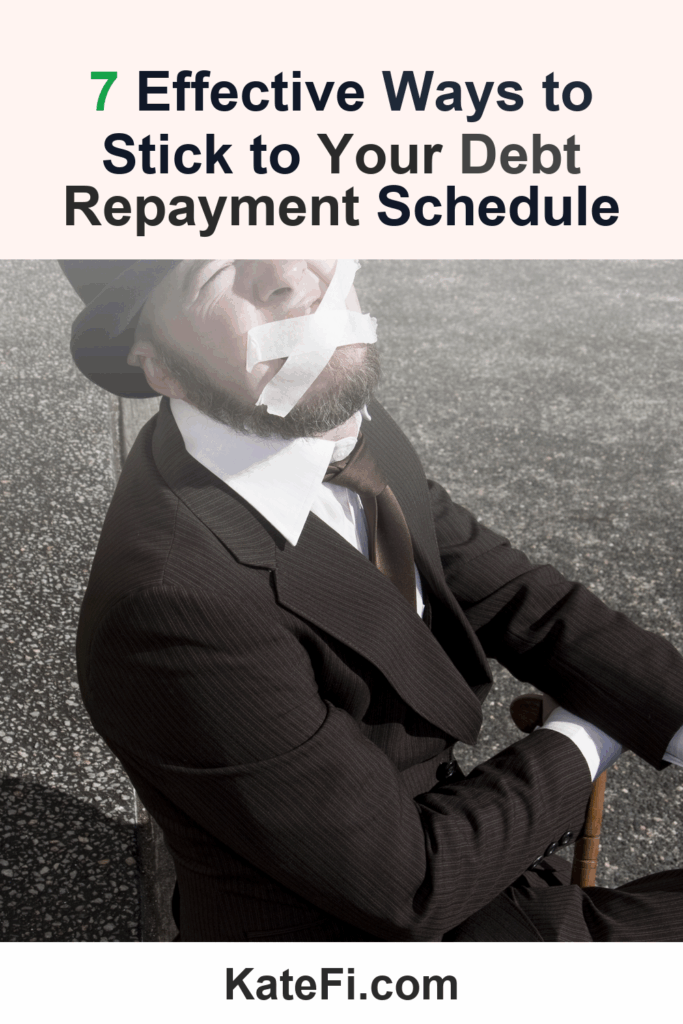5 Ways to Create a Debt Reduction Habit You Can Stick With
The current economic climate has prompted many households to reevaluate their finances. With inflation rates reaching heights unseen in decades and household debt climbing ever higher, the urgency for effective debt management has never been greater. According to the Federal Reserve, total household debt hit a staggering $16.51 trillion by the end of 2022, a trend that’s expected to continue in 2023. While many consumers are struggling with this reality, some have fallen victim to debt-relief scams that prey on their desperation.
Love our content? Show your support by following us — pretty please!🥺
FOLLOW ON PINTEREST
Hi! I’m Kate, the face behind KateFi.com—a blog all about making life easier and more affordable.
Creating a sustainable habit of debt reduction can not only improve your financial situation but also help you avoid these common scams. Here are five ways to build a debt-reduction habit that you can stick with.
1. Establish Clear Financial Goals
What You’ll Learn on the Call
- Estimated timeline and monthly payment range
- How credit may be affected in the short term
- What documents to gather to move faster
Not available in IL, KS, OR, TN, UT, WV.
Before embarking on your journey to financial freedom, it’s crucial to define what that freedom looks like for you. Establish clear, measurable goals that include:
- The total amount of debt you wish to reduce.
- The timeline for achieving that reduction.
- Specific steps you will take to reach these goals.
By breaking down your goals into smaller, manageable tasks, you’re more likely to stay committed. For instance, if you aim to pay off $10,000 in debt within two years, create monthly goals to keep you on track.
✅ See If You Qualify for Debt Relief
2. Create a Budget and Stick to It
Budgeting is a cornerstone of effective financial management. By creating a budget, you can better understand where your money goes each month and identify areas where you can cut back.
Here’s a quick budgeting checklist to get you started:
- Track Your Income: Write down all sources of income, including your salary and any side hustles.
- List Your Expenses: Categorize your expenses into fixed (like rent) and variable (like dining out).
- Set Limits: Allocate a specific amount to each category based on your priorities and financial goals.
- Review and Adjust: Regularly check your budget and make adjustments as necessary.
By sticking to a budget, you’re actively working towards your debt reduction goals, making it less likely that you will turn to untrustworthy debt-relief options.
3. Automate Your Payments
👉 Start Your Free Debt Relief Review
Not available in IL, KS, OR, TN, UT, WV.
In our fast-paced lives, it can be easy to forget payment dates, which can lead to late fees and a negative impact on your credit score. Automating your payments can help you stay consistent with your debt reduction efforts. Here are a few automation tips:
- Set Up Automatic Transfers: Allocate a certain amount each month to pay off your debt automatically.
- Enroll in Autopay for Fixed Bills: Set your fixed expenses (like utilities and loans) to pay automatically from your bank account.
Automation not only ensures timely payments but also instills a sense of discipline in your financial routine.
✅ See If You Qualify for Debt Relief
4. Educate Yourself on Debt Relief Options
With the rise in household debt, many companies promise miraculous solutions to financial woes. However, it’s crucial to educate yourself about legitimate debt relief options to avoid falling prey to scams. Some common, trustworthy options include:
- Debt Consolidation Loans: Combining multiple debts into one loan with a potentially lower interest rate.
- Credit Counseling: Working with a professional to create a manageable debt repayment plan.
- Debt Settlement: Negotiating with creditors to reduce the total amount owed.
Be wary of any company that asks for upfront fees or makes unrealistic promises. Always seek professional advice—consider getting a free consultation to explore your options safely.
5. Keep Track of Your Progress
Staying motivated during your debt-reduction journey can be challenging. Keeping track of your progress is a key component that helps you stay focused.
Consider maintaining a progress chart or using budgeting apps to visualize your achievements. Each time you reach a milestone, such as paying off a specific debt or sticking to your budget for a month, celebrate that success!
In addition to tracking financial metrics, monitor your credit score. Regularly reviewing your credit report can help you understand how your debt repayment efforts are impacting your creditworthiness.
✅ See If You Qualify for Debt Relief
Understanding the Impact on Your Credit
When working towards debt reduction, it’s vital to understand that some actions can impact your credit score. While paying down debt generally helps your credit, missed payments can have negative repercussions. Here’s what to keep in mind:
- Timely Payments: Always prioritize making payments on time.
- Credit Utilization: Aim to keep your credit utilization ratio below 30%. This means not using more than 30% of your total credit limit across all cards.
Before you start, gather important documents such as:
- A list of debts, including balances, interest rates, and payment history.
- Recent credit reports.
- Proof of income.
Having these documents readily available can speed up the consultation process and provide a clearer picture of your financial situation.
Conclusion
In summary, establishing a debt reduction habit is crucial in today’s economic climate. By setting clear goals, budgeting, automating payments, educating yourself about your options, and tracking your progress, you’ll not only work towards financial freedom but also protect yourself from common debt-relief scams.
Don’t let the stress of debt overwhelm you—take proactive steps today! Consider getting a free consultation to explore viable debt relief solutions tailored to your unique financial situation.
Important: This content is for education only—not legal, tax, or financial advice. Results and eligible programs vary by situation and state. Fees apply if you enroll and complete a program. Debt relief can affect credit; missed payments may lead to collections/lawsuits. Not available in IL, KS, OR, TN, UT, WV.






















